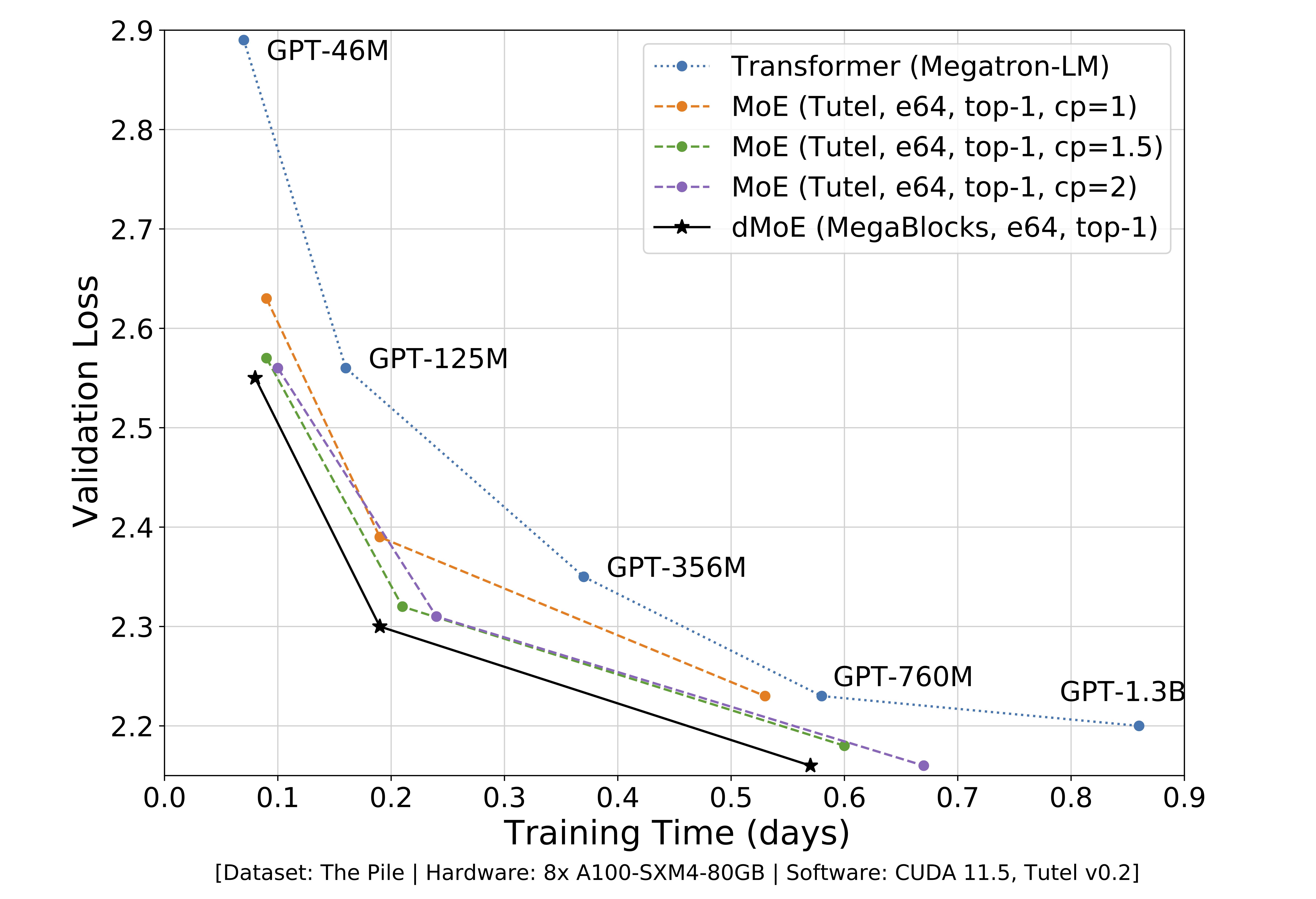This is a modified version of the original MegaBlocks repository. The original repository can be found here. The modifications include:
- Added support for Mixture of Attention heads (https://arxiv.org/abs/2210.05144)
- Added support for zloss introduced in ST-MoE (https://arxiv.org/pdf/2202.08906.pdf)
Here is an example of implementing the Mixture of Attention heads with this library:
import torch
import torch.nn as nn
from megablocks.layers.arguments import Arguments
from megablocks.layers.moa import dMoA
from flash_attn import flash_attn_func
from rotary_embedding_torch import RotaryEmbedding
class SparseCausalSelfAttention(nn.Module):
def __init__(
self,
hidden_dim: int,
n_head: int,
moe_top_k: int,
n_att_experts: int
):
super().__init__()
assert hidden_dim % n_head == 0
self.n_head = n_head
self.moe_top_k = moe_top_k
self.hidden_dim = hidden_dim
self.head_size = hidden_dim // n_head
args = Arguments(
hidden_size=hidden_dim,
ffn_hidden_size=hidden_dim,
moe_num_experts=n_att_experts,
moe_top_k=moe_top_k,
mlp_type='mlp',
mlp_impl='grouped',
memory_optimized_mlp=True,
bias=False,
activation_fn=None,
)
self.q_proj = dMoA(args)
self.k_proj = nn.Linear(hidden_dim, hidden_dim)
self.v_proj = nn.Linear(hidden_dim, hidden_dim)
self.rotary_embed = RotaryEmbedding(self.head_size // 2)
rope_freqs = self.rotary_embed.freqs.data
del self.rotary_embed.freqs
self.rotary_embed.register_buffer("freqs", rope_freqs)
def forward(self, x):
B, T, C = x.size() # batch size, sequence length, embedding dimensionality (n_embd)
# calculate query, key, values for all heads in batch and move head forward to be the batch dim
q = self.q_proj.map(x)
k = self.k_proj(x)
v = self.v_proj(x)
context_length = k.size(1)
q = q.view(B, T, self.moe_top_k * self.n_head, self.head_size) # (B, T, k * nh, hs)
k = k.view(B, context_length, self.n_head, self.head_size) # (B, T, nh, hs)
v = v.view(B, context_length, self.n_head, self.head_size) # (B, T, nh, hs)
k = k.repeat(1, 1, self.moe_top_k, 1) # (B, T, k * nh, hs)
v = v.repeat(1, 1, self.moe_top_k, 1) # (B, T, k * nh, hs)
q = q.permute(0, 2, 1, 3)
k = k.permute(0, 2, 1, 3)
q = self.rotary_embed.rotate_queries_or_keys(q, seq_dim=-2, offset=context_length - T)
k = self.rotary_embed.rotate_queries_or_keys(k, seq_dim=-2)
q = q.permute(0, 2, 1, 3)
k = k.permute(0, 2, 1, 3)
y = flash_attn_func(q, k, v, causal=True)
# output projection
y = self.q_proj.reduce(y.reshape(B, T, self.moe_top_k, self.hidden_dim).type_as(x))
y = y.view(B, T, C) # re-assemble all head outputs side by side
return yMegaBlocks is a light-weight library for mixture-of-experts (MoE) training. The core of the system is efficient "dropless-MoE" (dMoE, paper) and standard MoE layers.
MegaBlocks is integrated with Megatron-LM, where we support data, expert and pipeline parallel training of MoEs. Stay tuned for tighter integration with Databricks libraries and tools!
MegaBlocks dMoEs outperform MoEs trained with Tutel by up to 40% compared to Tutel's best performing capacity_factor configuration. MegaBlocks dMoEs use a reformulation of MoEs in terms of block-sparse operations, which allows us to avoid token dropping without sacrificing hardware efficiency. In addition to being faster, MegaBlocks simplifies MoE training by removing the capacity_factor hyperparameter altogether. Compared to dense Transformers trained with Megatron-LM, MegaBlocks dMoEs can accelerate training by as much as 2.4x. Check out our paper for more details!
NOTE: This assumes you have numpy and torch installed.
Training models with Megatron-LM: We recommend using NGC's nvcr.io/nvidia/pytorch:23.09-py3 PyTorch container. The Dockerfile builds on this image with additional dependencies. To build the image, run docker build . -t megablocks-dev and then bash docker.sh to launch the container. Once inside the container, install MegaBlocks with pip install .. See Usage for instructions on training MoEs with MegaBlocks + Megatron-LM.
Using MegaBlocks in other packages: To install the MegaBlocks package for use in other frameworks, run pip install megablocks. For example, Mixtral-8x7B can be run with vLLM + MegaBlocks with this installation method.
Extras: MegaBlocks has optional dependencies that enable additional features.
Installing megablocks[gg] enables dMoE computation with grouped GEMM. This feature is enabled by setting the mlp_impl argument to grouped. This is currently our recommended path for Hopper-generation GPUs.
MegaBlocks can be installed with all dependencies via the megablocks[all] package.
We provide scripts for pre-training Transformer MoE and dMoE language models under the top-level directory. The quickest way to get started is to use one of the experiment launch scripts. These scripts require a dataset in Megatron-LM's format, which can be created by following their instructions.
@article{megablocks,
title={{MegaBlocks: Efficient Sparse Training with Mixture-of-Experts}},
author={Trevor Gale and Deepak Narayanan and Cliff Young and Matei Zaharia},
journal={Proceedings of Machine Learning and Systems},
volume={5},
year={2023}
}
